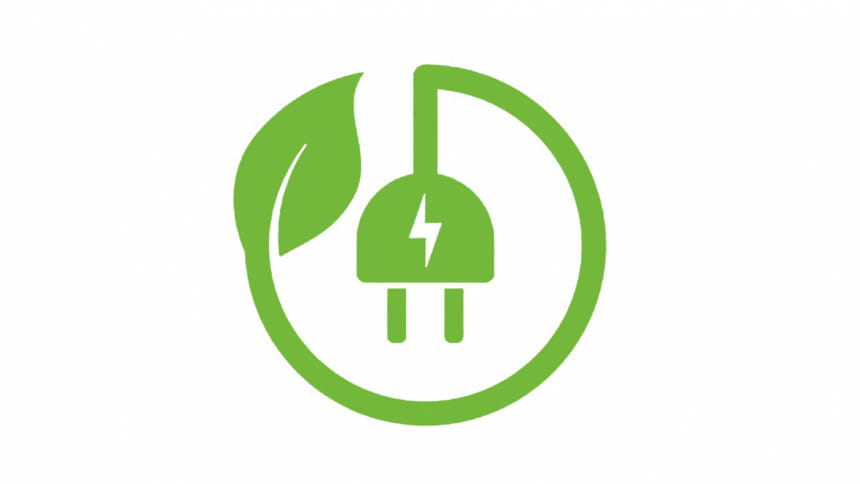Reducing AC Power Consumption: Tips and Tricks

Electricity bills are rising due to daily AC usage, so here are a few handy tips to reduce your AC's power consumption.
Keep your AC well-maintained
Maintaining your AC is most important. To keep your AC running smoothly and efficiently, it's crucial to maintain it regularly. Neglecting simple tasks like cleaning the air filter can lead to increased energy consumption, reduced cooling effectiveness, and poor indoor air quality. "Clean your air filters, especially in dusty areas. Clean them once a month or even once every 15 days depending on the amount of dust in your area. Ensuring clean air filters is essential for decreasing power consumption," suggested Ariful Islam.
Schedule professional servicing once or twice a year, ideally before the summer season kicks in. Dirty or faulty filters can decrease AC efficiency by up to 15%.

Leverage sleep timers and fans to your benefit
Most people tend to leave their AC on overnight, and this can use up a lot of electricity. A quick fix? Try your AC's sleep mode. Set your AC's sleep mode to one or two hours, as it cools the room within the adequate time and turns it off by itself. Another idea is using a timer to switch to a fan later on. The fan can regulate the temperature of the room to keep things cool and comfy even after the compressor stops running. On this note, an expert from Singer adds, "An effective way to reduce AC power consumption is to use a programmable thermostat, as it can detect once the room has reached the desired temperature and turn the AC off automatically."
Make sure to cool your room internally
If your room gets warm from sunlight streaming in through windows and doors, your AC has to work overtime. Invest in heavy curtains to block out the sun. No heavy curtains? No problem. Just throw a thick blanket or extra bed sheet over the windows. Additionally, it is important to make sure there are no gaps around doors or vents where cool air can escape. Keeping the room sealed helps it cool faster, reducing the AC's running time and decreasing power consumption. Ensure all the doors and windows are closed and try to use heavy curtains inside the room when the AC is on," emphasizes Ritesh Ranjan, Head of Business, Transcom Electronics.
Invest in a humidifier
A quick look at the weather app on your phone will show you two temperatures, one showing the actual one, and one showing what it "feels like". The "feels like", or real feel temperature is always higher than the actual temperature. Ever wondered why? It's because of humidity. When the air holds high humidity, it makes the surrounding area feel warmer. This effect extends indoors as well. Therefore, it's recommended to complement your air conditioning system with a dehumidifier. By doing so, it can lower the humidity levels, enabling the room to cool down more efficiently. Reduced humidity helps preserve the air's coolness, allowing the room to stay comfortable for longer periods even after the AC is switched off."
Invest in an energy-efficient AC
When it comes to reducing your AC's power usage, some handy tips can certainly help. Yet, for real cost-effectiveness during operation, it's smart to opt for energy-efficient models, especially those equipped with inverters and energy-saving features like ECO mode. According to various studies, making this choice can conserve energy anywhere from 30% to 50%. 'Features such as 8 Pole Digital Inverter with dual rotary compressor, AI Energy Saving mode, and WindFree Mode that we offer in our AC models can save up to 77% energy compared to fast cooling mode,' says Shahriar Bin Lutfor, Director and Head of Business, Consumer Electronics Division, Samsung Bangladesh.

Setting the right temperature
Adjusting your AC temperature setting can significantly impact energy consumption. Several studies indicate that setting your AC between 25 to 27 degrees Celsius can lead to savings of up to 30% on your electric bills compared to a lower setting of 18 degrees. "The American Society of Heating, Refrigerating, and Air-Conditioning Engineers (ASHRAE) suggests keeping AC temperatures from 24°C to 27°C. This will help in saving electricity," informed Ariful Islam, Engineer, Head of Research, and Innovation at Walton Residential AC.
This is because lower temperatures require your AC to operate at maximum capacity to cool the room, whereas a more moderate setting can maintain comfort while reducing energy expenditure.

 For all latest news, follow The Daily Star's Google News channel.
For all latest news, follow The Daily Star's Google News channel. 



Comments